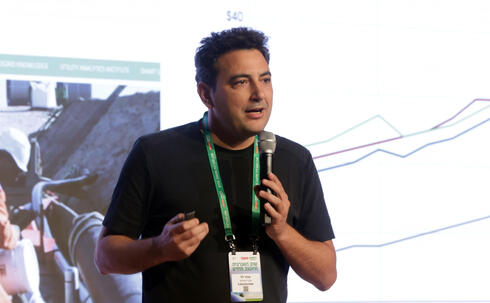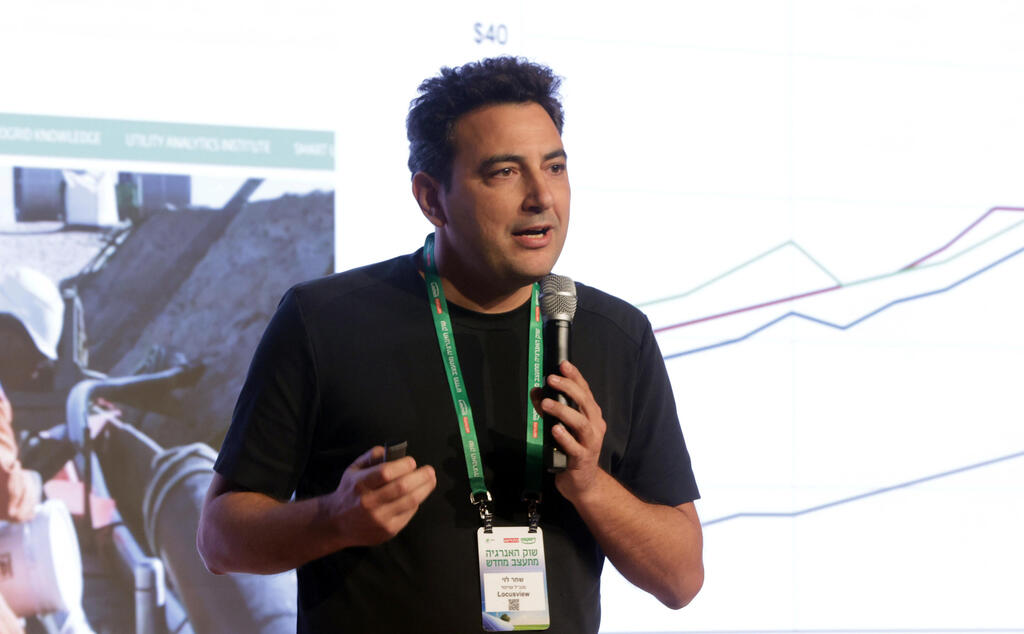
"If Israel doesn't invest in its grid, startups and AI growth will suffer"
Shahar Levi, CEO of Locusview, warns that outdated infrastructure and soaring energy demands threaten Israel's ability to sustain innovation and compete in the AI revolution.
"If Israel doesn't invest in its electricity grid, the next generation of startups won’t be able to grow here, and we won’t be in a position to develop AI," warned Shahar Levi, CEO and founder of Locusview, at a conference on the future of energy sponsored by Calcalist and Discount Bank. Levi emphasized that the outdated state of Israel’s infrastructure, largely unchanged since the 1950s, poses a critical threat to the country's ability to compete in the global technological landscape.
Levi highlighted how the global energy market is moving forward at an unprecedented pace. According to him, half a trillion dollars are invested annually in upgrading energy infrastructure worldwide—a figure projected to reach $6 trillion by 2050. "The world is moving there in giant strides," he said. "Of course, the U.S. and China lead in terms of investment, but many other countries are also making significant progress. Israel, however, is lagging behind."
Locusview, which was founded by Levi in 2014, has raised a total of $80 million to date, including a $64 million Series A round in 2021. The company has developed a Digital Construction Management (DCM) platform for energy, telecom, and water industries managing infrastructure capital projects, to meet stricter and climate-friendly regulations.
Levi outlined four significant trends driving global investment in energy infrastructure. The first trend is "hardening and embedding" to address the growing challenges of climate and weather disasters, as well as geopolitical conflicts. "In the U.S., storms in Florida and fires in California are driving massive investments in the electricity grid. What we see globally—fires, climate disasters, and wars—has made infrastructure resilience critical," he explained.
The second trend, which Levi said is crucial for Israel, is the massive increase in electricity consumption driven by data centers and advanced technologies. "As of today, we are only scratching the surface of investment in data centers. Today, the electricity consumption of data centers in the U.S. is equivalent to all the electricity consumed by Britain," he said. "This trend is going to grow, and we are talking about levels of magnitude here that we don't understand. If Israel doesn't invest in this, then the next generation of startups won't be able to grow in Israel. If we are not in a position to develop AI, then we will miss the revolution. There is also a security element here."
Levi also pointed to the escalating costs of electricity in the U.S., which are at their highest levels in 40 years, as evidence of the immense pressure growing demand places on infrastructure. "The impact of this on prices is dramatic," he said.
The third trend is the need for distributed energy systems. "A distributed model is becoming a very central thing," Levi said. "Today, every roof and every building is used, and in the US alone, we're talking about a 9-fold increase in consumption."
The fourth trend is the financial challenge of building new infrastructure. "It's clear to everyone that we need to build a lot more. The components are more expensive, inflation, materials, the supply chain—none of this is like what it was in the past," Levi said. "There is a 75% increase in costs, but the debt has also increased by 100%, partly due to the increase in interest rates. We have to build more, but building is becoming much more expensive. Trying to pass it on to the public with the tariff, that's the challenge," he added.














